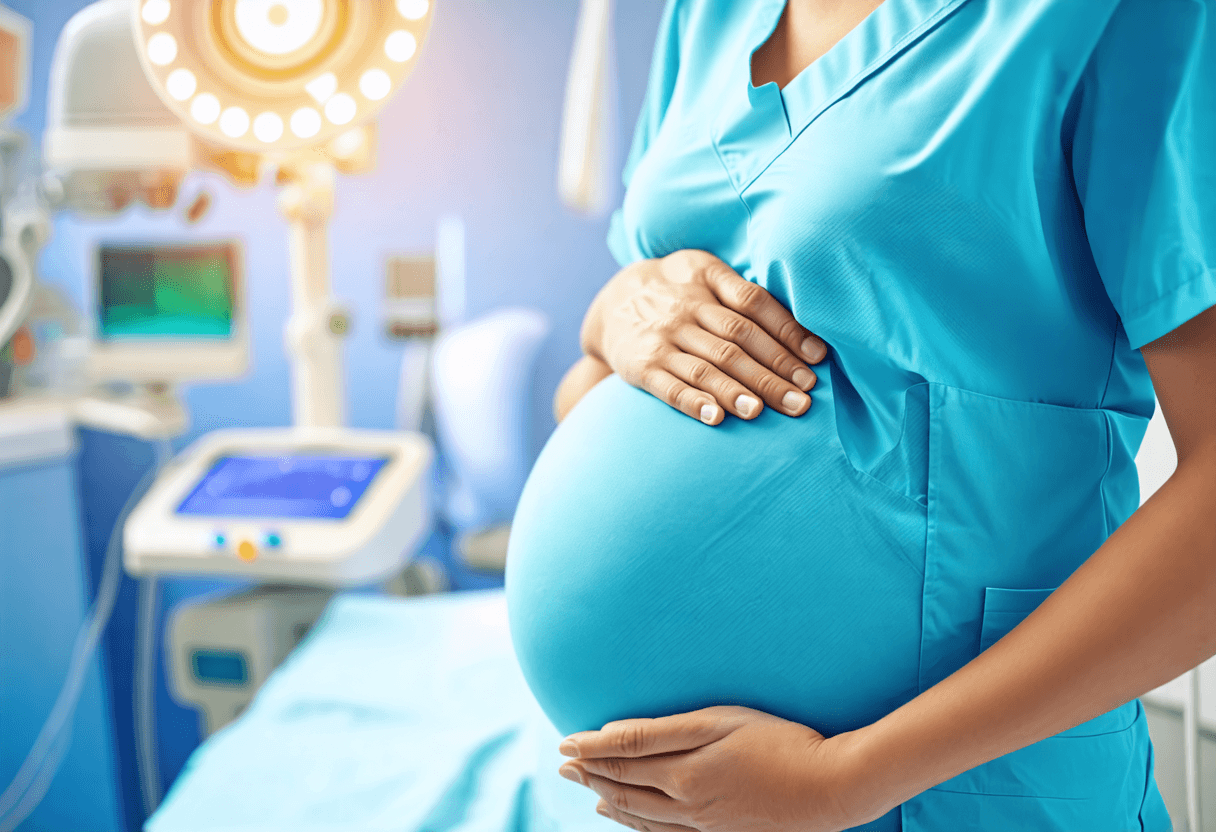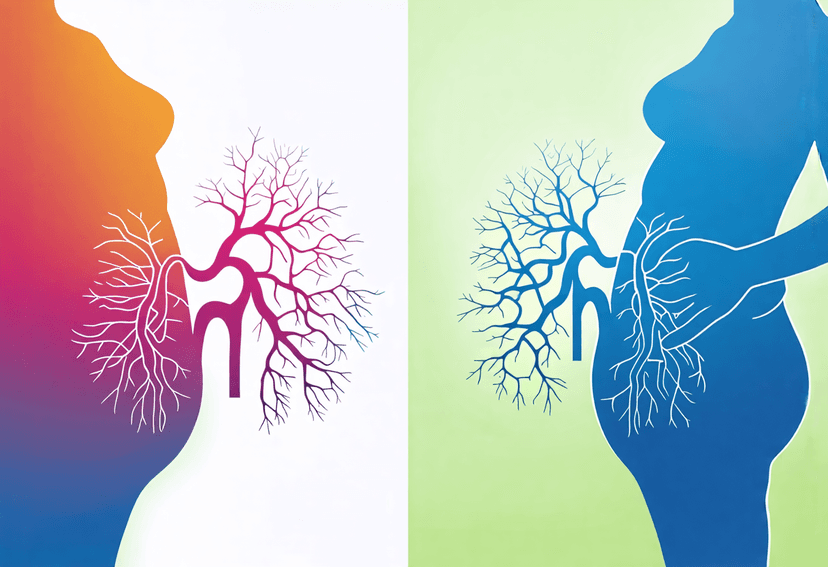
Appendix Surgery and Pregnancy: What You Need to Know
27 Oct, 2024
 Healthtrip
HealthtripWhen it comes to appendix surgery and pregnancy, there's a lot to consider. The appendix is a small, finger-like pouch attached to the large intestine, and its removal is a common surgical procedure. However, when you're pregnant, the situation becomes more complex. As an expectant mother, you want to ensure the health and well-being of your unborn baby, while also taking care of your own health. In this blog, we'll delve into the world of appendix surgery and pregnancy, exploring what you need to know to make informed decisions.
Understanding Appendicitis During Pregnancy
Appendicitis is a medical emergency that requires prompt attention. During pregnancy, the symptoms of appendicitis can be similar to those experienced by non-pregnant individuals, including abdominal pain, nausea, vomiting, and fever. However, the diagnosis can be more challenging due to the physical changes that occur during pregnancy. The growing uterus can push the appendix upward and outward, making it harder to diagnose. If left untreated, appendicitis can lead to serious complications, including perforation, peritonitis, and even death. Therefore, it's essential to seek immediate medical attention if you're experiencing any symptoms.
Most popular procedures in India
Risks of Appendicitis During Pregnancy
The risks associated with appendicitis during pregnancy are significant. Preterm labor, miscarriage, and fetal distress are all potential complications. In addition, the risk of perforation and peritonitis increases, which can lead to sepsis, a life-threatening condition. Furthermore, the appendix rupture can cause the bacteria to spread to the uterus, putting the fetus at risk of infection. It's crucial to seek medical attention immediately if you suspect you have appendicitis.
Wellness Treatments
Give yourself the time to relax
Lowest Prices Guaranteed!

Lowest Prices Guaranteed!
Diagnosing Appendicitis During Pregnancy
Diagnosing appendicitis during pregnancy can be challenging due to the physical changes that occur during pregnancy. Imaging tests, such as ultrasound and MRI, are often used to confirm the diagnosis. In some cases, a CT scan may be necessary, but this is typically avoided during the first trimester due to the risk of radiation exposure to the fetus. A physical examination, medical history, and laboratory tests, including complete blood counts and liver function tests, can also aid in the diagnosis.
Treatment Options for Appendicitis During Pregnancy
The treatment for appendicitis during pregnancy typically involves surgical removal of the appendix, known as an appendectomy. The procedure can be performed laparoscopically or through an open incision, depending on the severity of the condition and the gestational age of the fetus. In some cases, antibiotics may be administered to manage the infection, but surgery is usually the most effective treatment. The goal of treatment is to remove the infected appendix, prevent complications, and ensure the health and well-being of both the mother and the fetus.
Recovery After Appendectomy During Pregnancy
Recovery after an appendectomy during pregnancy requires careful monitoring to ensure the health of both the mother and the fetus. Pain management is crucial, and medication should be carefully selected to minimize risks to the fetus. The incision site should be kept clean and dry to prevent infection, and follow-up appointments with the healthcare provider are essential to monitor for any complications. In some cases, bed rest may be recommended to reduce the risk of preterm labor.
Emotional Support During Recovery
Recovery after an appendectomy during pregnancy can be emotionally challenging. It's essential to have a strong support system, including family, friends, and a healthcare provider. Joining a support group or online community can also provide a sense of connection and understanding. Remember, it's okay to ask for help, and don't hesitate to reach out to your healthcare provider if you have any concerns or questions.
Conclusion
In conclusion, appendix surgery and pregnancy require careful consideration and attention. As an expectant mother, it's essential to be aware of the risks and complications associated with appendicitis during pregnancy. By understanding the diagnosis, treatment options, and recovery process, you can make informed decisions about your health and the health of your unborn baby. Remember, your healthcare provider is there to support and guide you throughout your pregnancy journey. Don't hesitate to reach out if you have any concerns or questions.
At Healthtrip, we understand the importance of prioritizing your health during pregnancy. Our team of experts is dedicated to providing you with the information and resources you need to make informed decisions about your care. Whether you're seeking a second opinion or exploring treatment options, we're here to support you every step of the way.
Related Blogs

Kidney Health and Pregnancy
Understand the relationship between kidney health and pregnancy

Body Re-Alignment for a Healthier Pregnancy
Discover the benefits of body realignment for a healthier pregnancy.

Epilepsy and Pregnancy: What to Expect
Managing epilepsy during pregnancy, and what to expect for mother

Varicose Veins and Pregnancy: What You Need to Know
Understand how pregnancy affects varicose veins and what you can

Appendix Surgery Recovery Time: What to Expect
A guide to recovering from appendix surgery, including recovery time

The Benefits of Laparoscopic Appendix Surgery
The advantages of laparoscopic appendix surgery, including less pain and










